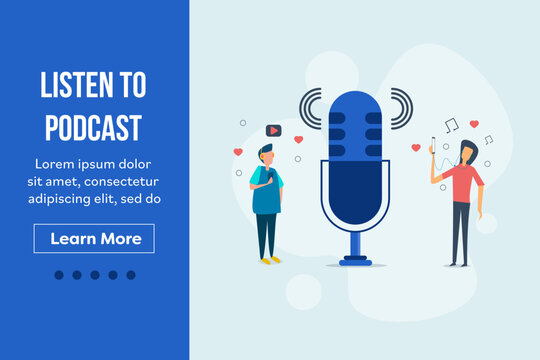Are you looking for ways to take your AI content writing to the next level? Images and videos can be powerful in delivering an impactful message and engaging the audience. In this blog post, we will explore five effective strategies that you can use to enhance your AI content writing with images and videos. Keep reading to learn how to leverage these media tools to create compelling content!
Harness the Power of Visuals to Engage Your Audience
One of the most powerful ways to engage your audience is to use visuals. Images and videos can help to explain complex concepts in a way that is easy to understand. They can also help to create a more engaging experience for your readers.
When writing content, it is important to consider the type of visual you are using. Some visuals are better suited for explaining complex concepts, while others are better for creating a more engaging experience.
It is also important to consider the type of visual you are using in relation to the topic you are writing about. For example, images related to travel might be more engaging than images related to business.
Finally, ensuring your visuals are optimized for maximum impact is important. This means that you should ensure they are sized correctly and placed in a way that will maximize their impact.
Utilize Video Content to Increase Engagement and Reach
Incorporating video content into your AI content writing can help to increase engagement and reach. By utilizing video, you can draw in a wider audience and Convince them of the importance of your message. Additionally, video allows you to illustrate complex concepts more easily for readers.
To create effective videos for your AI content, start by considering the following tips:
- find interesting or engaging subject matter
- be concise but thorough in your explanation
- make use of graphics and other visual elements to add variety and interest
- include action shots and footage that shows how the proposed solution will change people’s lives
How to Incorporate Images and Videos into Your AI Content Writing
When it comes to incorporating visuals into your AI content writing, you should keep a few things in mind. First of all, make sure to use high-quality photos and videos that will resonate with your readers. Secondly, be sure to create engaging visual stories that will help boost engagement and capture your audience’s attention. And finally, be sure to optimize your visuals for maximum impact so that they can effectively communicate your message.

Best Practices for Optimizing Visuals for Maximum Impact
Choose Visuals that are Relevant to Your AI Content Writing
Visuals are an important part of any content marketing strategy, and they can be especially helpful when it comes to engaging readers with your AI content. However, choosing visuals that are relevant to your topic can be tricky. Here are five tips for optimizing visuals for maximum impact:
Choose images that are relevant to your topic.
Make sure your images are relevant to your topic and that they support the points you’re making in your AI content. For example, if you’re writing about the benefits of artificial intelligence, including images that illustrate those benefits.
Use visually appealing images.
Visually appealing images tend to be more effective than those that aren’t. Use images that will engage readers and make them want to keep reading.
Use images that are representative of your topic.
Make sure your images are representative of the topics you’re writing about. For example, if you’re writing about artificial intelligence, include images that illustrate how AI is used in different industries.
Use visuals that are relevant to your audience.
If you’re targeting a specific audience, be sure to include visuals that are relevant to them. For example, if you’re writing content for tech-savvy millennials, make sure to use images and videos that reflect that target audience.
Use variations of visuals together in order to create more impactful content campaigns. When using photos and videos together, be sure to vary the visuals so that they have a greater impact. For example, include images and videos of different sizes, colors, and styles.
Incorporate Appropriate Sizing and Formatting of Images and Videos
When it comes to visuals for your AI content writing, it is important to choose content relevant to the topic. Additionally, consider using images and videos that are visually appealing and capture your reader’s attention. Incorporating effective sizing and formatting of visuals can help optimize their impact on readers.
To ensure a successful visual presentation, keep these tips in mind:
- Choose images that are appropriate to the topic of your article. For example, if you’re discussing feminism, use feminist images in your articles.
- Use images that are high resolution so they look sharp on devices with high-quality displays. Lower-resolution photos will appear grainy when viewed online or printed out.
- Make sure to caption all images and videos. This will help readers understand the content and provide context for the images.
- Use videos that are relevant to your article topic. For example, if you’re writing about the benefits of AI, including videos that discuss how AI is being used in various industries.
- Format your videos for maximum impact. For example, use a headline font that is eye-catching and easy to read. Use a clear font size so readers can see all of the text in the video. Use professional video editing software to make your videos look their best.
Provide Detailed Explanations with Visual References
Images and videos can be an incredibly powerful way to communicate your message to your audience. However, they can also be ineffective and frustrating if not used properly. This article will discuss some best practices for optimizing visuals for maximum impact.
Use Appropriate Sizing and Formatting
Images and videos should be sized appropriately to fit the screen they are being viewed on. They will likely be ineffective and frustrating to view if they are too large or too small.
Include Detailed Explanations with Visual References
It is important to provide as much detail as possible when providing explanations with visual references. This will help your audience understand the information being conveyed in a more effective way.
Use Animations and Graphics Effectively
Using animations and graphics effectively can help to add interest and excitement to your visuals.
Use Videos That Reflect Your Message
When choosing videos to use, it is important to make sure they reflect the message you are trying to communicate. For example, if you are discussing safety procedures, using video footage of accidents or injuries may not be the best choice.
Make Sure Your Images Lead the Eye Where You Want It To Go
Ensure that your images lead the eye where you want it to go by creating interesting focal points and adding effects like motion blur or depth of field. Doing this will ensure that your audience will spend more time looking at your visuals than anything else on your page.
Add Descriptive Text to Enhance Engagement
When it comes to visuals, there are a few things you can do to help make your content more engaging and eye-catching. First, make use of images and videos to illustrate your points. This way, readers will be able to see the concepts in action and understand them better. Additionally, add descriptive text to enhance engagement. This can include explanations of scientific jargon or specific details about the image or video that may not be immediately apparent. These techniques will help increase reader retention and increase clicks on your website’s links.

The Benefits of Using AI-Generated Images and Videos in Content Writing
Increased Engagement with Visual Content
When it comes to content marketing, one of the most important things you can do is create engaging visuals. Images and videos can help to engage readers and drive more clicks to your website or blog.
Here are five ways to enhance your AI-generated images and videos with descriptive text:
Use images and videos to illustrate points.
If you’re writing about a complex topic, using images and videos can help to illustrate your points. For example, if you’re writing about the benefits of using AI in content writing, you could use images of AI-generated content to show how it can be used to improve engagement rates.
Use images and videos to show off your work.
If you’re a content creator, using your work’s images and videos can help showcase your skills. For example, if you write about how to make a cake, you could use an image of the cake you made to show people what it looks like.
Use images and videos to entertain readers.
If you’re writing about something lighthearted, using images and videos can be fun and entertaining for readers. For example, if you write about how to get over a breakup, you could use humorous images or videos to show how it’s done.
Use images and videos for social media shareability.
Images and videos are great for social media shareability…especially if they’re AI-generated. For example, if you write about how to make a cake, you could include a video of the cake being made on Instagram for potential followers.
Use images and videos to create SEO value.
Images and videos can also help to improve your website’s SEO value. For example, if you have a blog post about the benefits of using AI in content writing, including an image or two from your article can boost organic search results.
Automated Image and Video Creation with AI
Images and videos are an essential part of any content marketing strategy. They can help to engage and attract a wider audience and can be used to promote your brand or product. However, creating images and videos alone can be time-consuming and difficult.
AI-generated images and videos can help to solve these problems. They can be created quickly and easily using several automated tools and can be tailored to specific needs.
The benefits of using AI-generated images and videos in content writing are clear. They can be more engaging and attractive than traditional images and videos and can be used to promote your brand or product in various ways. Automated image and video creation with AI is a powerful tool that can help to increase your content marketing success.
The Benefits of AI-Generated Visuals for SEO
Anyone with a website or blog can improve their content by adding images and videos. In this article, we’ll explore some of the benefits that using AI-generated visuals can provide for your content-writing efforts.
- Enhanced Visibility: If you can create visually appealing images and videos, they will likely be more popular and effective than those produced manually. Not only will viewers appreciate the high quality, but search engines will see them as an additional signal that your content is authoritative and worth reading. Additionally, adding video helps capture user attention spans longer.
- Increased Engagement: When people are engaged with your content, they’re more likely to stay on your page and read the entire thing – no matter how long it is. Videos also tend to lead to longer-term engagement compared to text-only content.
- Improved SEO: In addition to increasing your content’s visibility, AI-generated visuals can help improve your website’s SEO. Images and videos often have more keyword opportunities than regular text, making them ideal for optimizing your content for better ranking on search engines.
- Increased Interaction: By adding images and videos, you can extend the interaction people have with your content beyond just reading it – you can also create a conversation around it. This increases the chances that people will share or like it, which can lead to even more traffic and potential leads for your business.
- Improved Customer Experience: When your customers have a great experience with your product or service, they’re more likely to return and recommend you to their friends. Images and videos can help create a positive customer experience by providing useful information, entertaining viewers, and demonstrating the quality of your product.
How to Get Started with AI-Generated Visuals in Content Writing
There are many reasons why using AI-generated visuals in content writing can be beneficial. First and foremost, they help to improve SEO. By including high-quality images and videos within your content, you’re helping to show off your site’s professionalism and authority. In addition, they can add interest and excitement to your articles, drawing readers in who may not have otherwise been interested. Additionally, AI-generated visuals can help to foster a better understanding of your topic among potential customers or clients. Finally, by using attractive visuals that are relevant to your audience, you can encourage them to take action – whether that means clicking through to a specific page on your site or buying something from you. So whether you’re looking for ways to improve your site’s overall appearance or boost conversions, AI-generated visuals can play a role.
Getting started with AI-generated visuals in content writing is easy. All you need are some basic tools and a bit of creativity. For example, you can use image recognition software to create visual charts and graphs that are automatically generated based on data collected from your website visitors. You can also use artificial intelligence (AI) services like Google Cloud Vision to identify objects and aspects of images that may be relevant to your article topic – for example, reviewing customer photos for potential product features or identifying landmarks in scenic imagery. Finally, if you have video footage that you’d like to include in your content, there are plenty of video editing applications that can automatically add sound and graphics to create stunning video trailers, infographics, or even full-length movies. So regardless of your content writing needs, AI-generated visuals will likely be useful in your arsenal.

Tips for Incorporating AI-Generated Images and Videos into Your Content Writing
Visuals play an important role in content marketing, and AI-generated images and videos can be useful tool for increasing engagement and reaching people who might be interested in your product or service. There are a few things to consider when using visuals in your content:
- Make sure the visual is appropriate for the topic being discussed. Some images may not be appropriate for certain topics, such as images of children or graphic medical images.
- Use photos that accurately represent the subject matter at hand. For example, if you’re discussing fashion trends, don’t use images of models wearing outdated clothes; use actual clothing samples from current seasons to illustrate your point. Photos that are out of context can also give readers a misleading picture of what the article is about (for example, a photo caption that says “A young girl exercises” could lead someone to believe that the photo shows an obese person exercising).
- Be mindful of copyright issues when selecting visuals for your content. Always ask permission from owners of any copyrighted material before using it in your writing or online presence (unless you have written permission from the copyright holder to reprint their material). Avoid using stock photos without first obtaining permission from rights holders – this can result in legal complications down the road!
- Use graphics wisely – they can help break up long paragraphs and make the text easier to read on screen. However, make sure they’re used sparingly so they don’t overpower the text or distract readers from what’s being said. Conversely, too many graphics can also look amateurish and unprofessional.
Use specific examples to support your points:
To create successful visual communication, remember these three simple rules:
- always choose relevant imagery
- present visuals as part of an overall strategy
- test before releasing anything into public space.
“When choosing visuals for social media posts or webpages, consider how each image will add value – especially considering hashtags (#), linkbacks,and other engagement options .”

How to Use AI-Generated Images and Videos to Enhance Your Content Writing
When it comes to utilizing visual content in your AI content writing, there are a few things to remember. First and foremost, remember that imagery can be incredibly impactful when it comes to engaging readers. Additionally, images can also help you differentiate your content from others on the web. When crafting visuals for your AI content, make sure to use high-quality images that will resonate with your audience. Furthermore, incorporating videos into your writing can also be an extremely effective way of increasing engagement and reaching new viewers. By providing users with both text and visuals together, you’ll create a complete experience that is hard to ignore. Plus, video content is becoming increasingly popular, so incorporating it into your AI blog may be perfect for you!
Creating an Effective Visual Strategy for Your AI Content Writing
Visuals can be a powerful tool for engaging your audience and driving engagement. When used correctly, visuals can help to explain complex concepts in an easy-to-understand way, help to illustrate important points, and create a more immersive experience for your readers.
When selecting visuals for your content, you must consider the target audience you are writing for. Some visuals may be more appropriate for a technical audience, while others may be more appropriate for a general audience. Additionally, it is important to consider the tone of your content. Some visuals may be appropriate for a serious tone, while others may be more lighthearted.
When incorporating visuals into your content, it is important to consider your website’s or blog’s layout. Many bloggers and website owners prefer to place images in the header or footer of their pages in order to keep content organized and easy to read. Additionally, many bloggers and website owners prefer to place images near the beginning or end of their posts in order to create a sense of anticipation or closure.
Finally, it is important to remember that visual can’t do all the work on their own; they need good writing to accompany them to be effective. When using visuals in your content, ensure that you provide useful information that will help your readers learn or understand what you are saying. If you can write well and also use visuals effectively, you will have created an amazing piece of content that will engage and inspire your readers!

Integrating Visuals into Your AI Content Writing: What You Need to Know
Understand the Purpose of Visuals in Content Writing
Visuals are an important part of content writing because they can help readers understand and interact with your text more effectively. They can also add a level of excitement or interest to your content, which can encourage people to keep reading. For example, visuals showing users how a proposed solution will work or potential benefits it may offer can be extremely persuasive.
Choose Appropriate Visual Types for Your Article or Piece
When choosing visuals for your content, you should consider the type of audience you’re targeting. For example, images featuring computers and hardware might be appropriate if you’re writing about technology. If you’re writing about gardening tips, images showcasing plants and flowers may be more effective than screenshots from videos about gardens (since gardeners don’t typically watch videos).
Plan Ages Appropriately for Vectors and Graphics in Articles and Blog Posts
Readers will have different reactions to visual content based on their age group and experience level. Whether you’re discussing complex scientific concepts or simply sharing a recipe, make sure that graphics and vector files are properly labeled so that everyone who reads your article can understand them easily (e-reader devices often provide labels for images). Additionally, older adults might appreciate photos with captions explaining what’s being depicted instead of just showing the image without any accompanying text (often called “visual storytelling”).
Testimonials Are A Powerful Method for Showingcase Experts’ Views
Testimonials – written by individuals who’ve tried the product or service – can sell products and services when used correctly. When including testimonials in your article or blog post, be sure to specify where these comments came from (forum posts? social media? review websites?) so readers know whom they should trust when taking advice on a given topic Alcohol Mahjong Elegant Undoubtedly! 5 Jun 8 at 9 pm Addicted To Mahjong – This Game Is Addictive! , take care not to overcrowd your article with too many testimonials; one per paragraph is usually ideal.
How To Incorporate Images And Videos Into Your AI Content Writing
Images are an incredibly powerful way to engage readers and communicate information quickly and effectively – perfect capabilities for AI-generated images! You can create a more visually rich and engaging content experience by using AI-generated images alongside human-generated ones.
There are a number of ways to incorporate images and videos into your AI content writing:
- Use images and videos to illustrate complex concepts or explain difficult topics in an easily-digestible way. For example, you could use images and video footage to explain the process of image recognition or machine learning.
- Use images and video to show users how a proposed solution will work or what potential benefits it may offer.
- Incorporate visuals for lead generation purposes – by featuring photos of users who’ve successfully used your product or service; you can capture their attention and persuade them to try it out for themselves.
- Use visuals as part of an overall editorial strategy, including embedded infographics, headshots, and microsites that provide supplementary information about the topic at hand.
Visuals have become an essential part of content marketing, and AI-generated visuals are only increasing in importance as they provide the opportunity to quickly create efficient, high-quality visuals. By strategically utilizing visuals ranging from AI images to videos, one can successfully deepen engagement with their target audience and increase reach. With these tips and best practices in mind, you will surely be well on your way to creating powerful visual content for your AI content writing projects!
For more information about using different types of visuals for effective content creation, be sure to check out our other articles on this topic!
FAQ
Who are AI Content Writers?
AI Content Writers are automated tools that generate content.
What do AI Content Writers do?
AI Content Writers create content from templates and data sources.
How do AI Content Writers work?
AI Content Writers use algorithms to generate content from templates and data sources.
Are AI Content Writers reliable?
Yes, AI Content Writers are reliable when used with quality templates and data sources.
